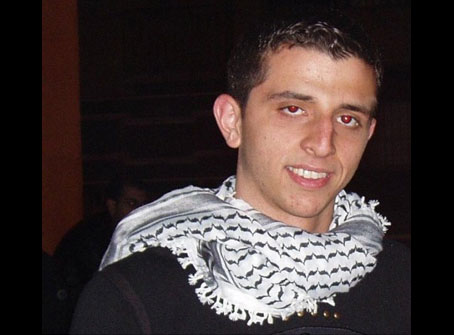Reversing Prior Precedent, Israeli Supreme Court Rejects Palestinian Prisoner Rawi Sultany's Appeal to Continue his Higher Education Studies in Prison
Adalah: "We must seriously consider that the Supreme Court's prior decisions have been reduced to slogans."

(Haifa, Israel) During a hearing held on 24 December 2012, the Israel Supreme Court rejected Adalah's appeal (Prisoner Appeal 2539/12) on behalf of Rawi Sultany (27 years-old), a Palestinian Arab citizen of Israel classified by the Israel Prison Service as a “security prisoner”, requesting that he be able to complete his higher education studies at the Open University. Mr. Sultany had already completed two years towards a diploma in Political Science via a correspondence course while incarcerated in prison. Adalah Attorney Rima Ayoub submitted the appeals against the Magistrate Court and the District Court’s decisions to uphold a new IPS policy in place since 2011 that forbids Palestinian political prisoners from studying through the Open University.
The Supreme Court's critical decision was that higher education is not a right for people classified as security prisoners. Adalah Attorney Orna Kohn, who represented Mr. Sultany before the Supreme Court, emphasized that "The justices retracted earlier decisions that higher education is the right of a prisoner, as it is the right of any other person, as long as his or her learning does not infringe on prison security and organization, cause a security threat, or is banned under the law under which the prisoner is tried."
Attorney Kohn stated that the Court’s decision was a radical departure from its prior decisions holding that education is a basic right. During the hearing, Chief Justice Asher Grunis, who presided over a three-justice panel that considered the case, called the Court’s past decisions in this regard "merely slogans". Attorney Kohn added, "Legal precedent stipulates that the rights of prisoners must be preserved. Imprisonment is not intended to pile additional punishments on top of the sentence and loss of freedom of movement."
The Court also rejected two further petitions brought respectively by private Attorney Abeer Baker and the Association for Civil Rights in Israel (ACRI) on behalf of prisoners who had nearly completed their studies when the IPS instituted its new policy.
In April 2011, Adalah petitioned the Court on behalf of Mr. Sultany to allow him to complete his studies during his 68-month prison sentence on charges of contact with an enemy agent. Mr. Sultany had begun studies in the department of Political Science at the Open University, the only available studies in prison, and had achieved remarkable success despite the conditions of his detention.
Case Citation: Prisoner Appeal 2459/12, Said Salah v. Ministry of Public Security and the Israel Prison Service (decision delivered on 24 December 2012)
Read also:
Adalah Appeals District Court Decision Banning Palestinian Prisoner Rawi Sultany from Higher Education – 27 March 2012















